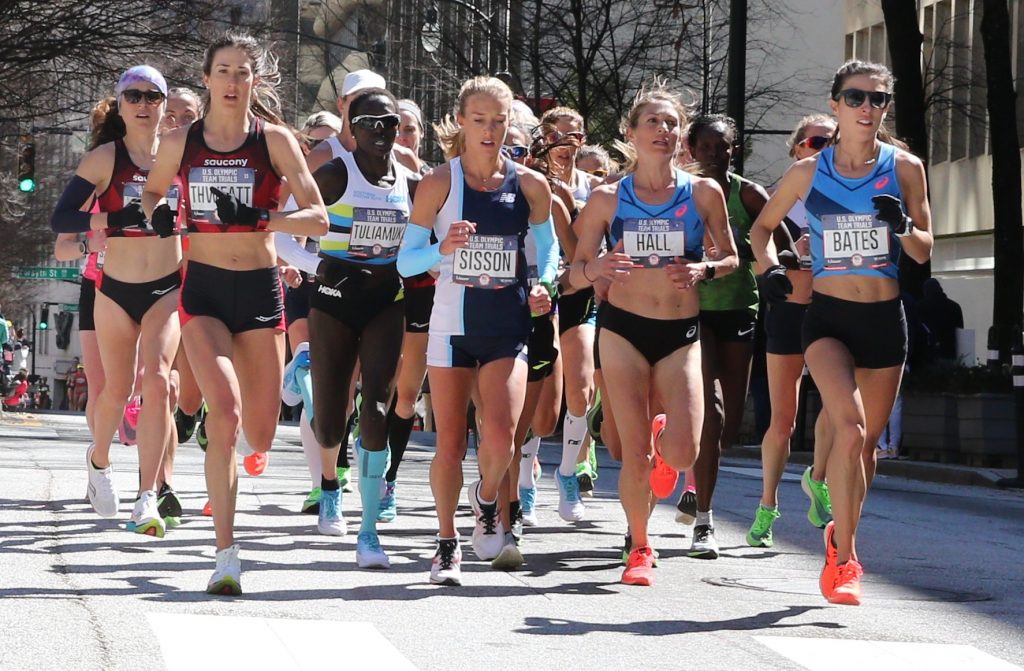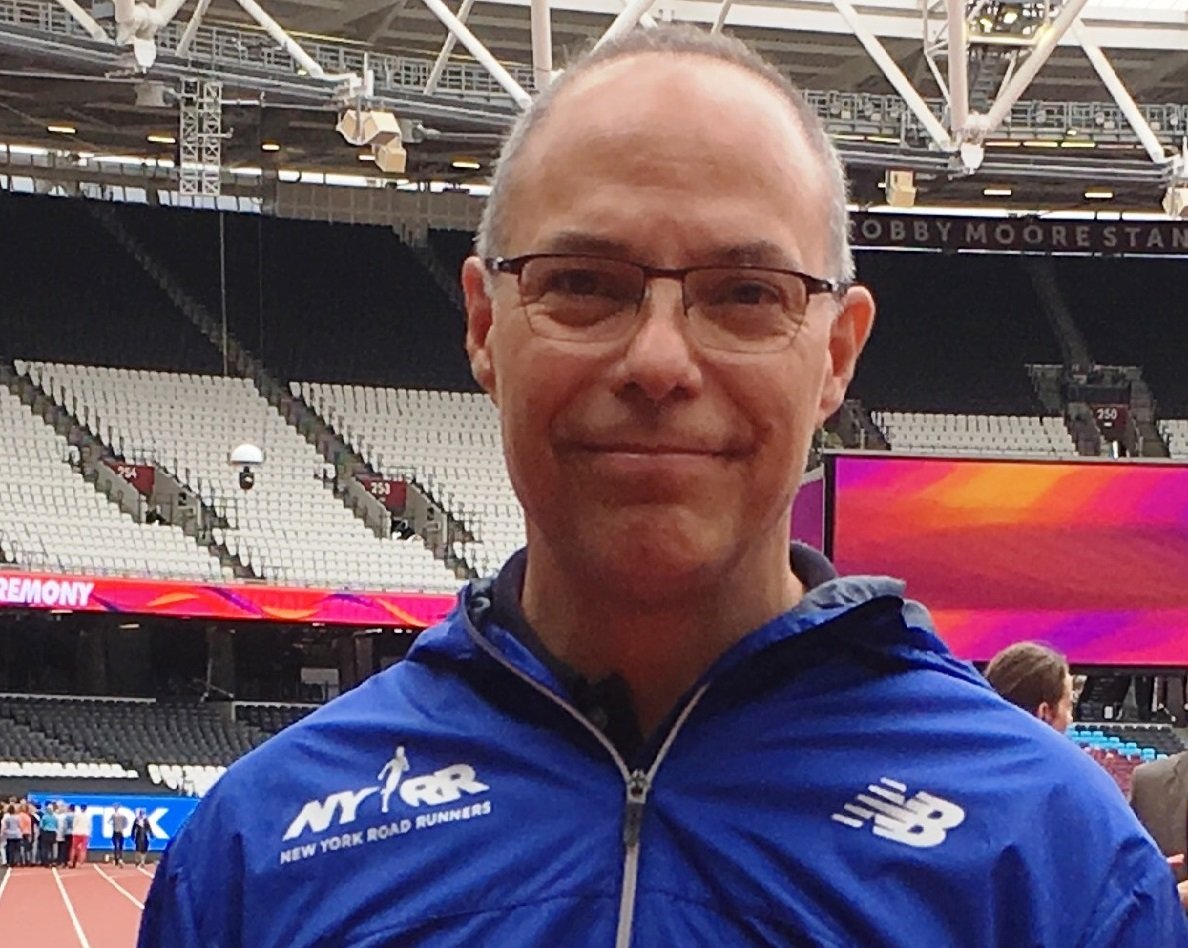David Monti: The Trials Already Have A Winner: USA Women’s Marathoning
By David Monti , @d9montiORLANDO (01-Feb) — When reigning USA Olympic Trials Marathon champion Aliphine Tuliamuk finished seventh at the 2022 TCS New York City Marathon in a personal best 2:26:18, she had no idea that she had just become the first American woman to record a qualifying mark for the Paris 2024 Olympic Games. World Athletics, the global governing body for athletics and road running, had yet to announce the qualifying system for those Games, and Tuliamuk was just happy to have finished seventh after an injury-shortened training cycle.
“I think I excel when the conditions aren’t perfect,” Tuliamuk told reporters that day. She added: “I think today that’s the case.”
It would not be until the following month that Tuliamuk, who runs for HOKA Northern Arizona Elite, would learn that World Athletics had opened the qualifying window, retrospectively, on November 1, and that the New York City race was the first big marathon where qualifying marks could be set. She was comfortably under the announced entry standard of 2:26:50, but that mark seemed daunting for other American Olympic hopefuls. At that time only a total of 24 American women had hit that time throughout history, and nine of them –including Joan Samuelson, Deena Kastor, Shalane Flanagan and Kara Goucher– had long ago retired.
But there was no hand wringing. The response from American women was both swift and emphatic: We’ve got this.
Thus began the most successful period of marathon running ever by American women. It kicked off with Betsy Saina running 2:21:40 at the Tokyo Marathon in March, 2023, a big personal best and good for fifth place. Lindsay Flanagan ran 2:26:08 in the same race (off of a bold 1:10:59 for the first half), and just like that the United States had claimed all three available women’s quota spots for the Paris 2024 Marathon 11 months before Saturday’s Olympic Team Trials Marathon here.
“We did it,” Saina tweeted after her race in Tokyo. “Got Olympics standard and run a PB 2:21:40. Off to the next one in the fall.”
With the exact qualifying algorithm for the 2024 Trials still unknown, USA women who wanted a shot at making it to Paris needed to make sure they had a 2:26:50 or better in the bank. They attacked the problem with gusto, banging out the miles and repeatedly beating that standard. Emma Bates was next with a 2:22:10 fifth place at Boston, a qualifier because she finished fifth in a World Athletics Platinum Label marathon (Boston is otherwise too downhill for times to count). Six days later, Susanna Sullivan ran 2:24:57 at London, then in June Lauren Hagens –Tuliamuk’s NAZ Elite teammate– ran 2:25:56 at Grandma’s Marathon in her debut at the distance. Six women had now hit the standard.
In the fall, the times kept coming. Saina ran a second qualifier in Sydney in September (2:26:47), but the big haul came at the Bank of America Chicago Marathon in October. Emily Sisson (2:22:09), Molly Seidel (2:23:07), Sara Vaughn (2:23:24), Gabi Rooker (2:24:35), Dakotah Lindwurm (2:24:40), Emma Bates (2:25:04/second qualifier), and Tristin Van Ord (2:25:58) all made the time. Emily Durgin got the final qualifier in Toronto a week later, running 2:26:46 in her first completed marathon. In all 13 women got the mark.
While each of these women were running for themselves, they collectively ensured the value of Saturday’s Olympic Trials here. Even with Bates, Sullivan and Seidel out with injury or illness, it is a near-certainty that a regular 1-2-3 finish order will determine the team. That is especially true because an athlete with what is effectively the World Athletics “B” standard of 2:29:30 can also claim a team spot under both USATF and World Athletics rules. Another eight USA women have made that secondary standard: Nell Rojas (2:28:32), Annie Frisbie (2:27:02), Jackie Gaughan (2:27:08), Des Linden (2:27:35), Maggie Montoya (2:28:22), Jane Bareikis (2:29:00), Savannah Berry (2:29:13), and Jessica McClain (2:29:25). A top-3 finish for any of these women puts them on the Paris 2024 team regardless of their race time on Saturday.
There is one wrinkle, however. The second-fastest USA marathoner of all time, Keira D’Amato, doesn’t have an Olympic Games qualifying mark. That’s because her 2:19:12 USA record (since broken by Sisson) in Houston in January, 2022, and her 2:23:34 at the World Athletics Championships in Eugene in July, 2022, and her 2:21:48 in Berlin in September, 2022, all came before the qualifying window opened. D’Amato didn’t run a spring or a fall marathon in 2023, choosing to focus on the World Athletics Championships in Budapest last August where she finished 17th in 2:31:35 in steamy conditions. D’Amato will need to dip under 2:29:30 here on Saturday –in addition to finishing in the top-3– in order to make the team. That’s well within her capabilities.
Sadly, the same period has brought mostly frustration for American men who hope to compete in the Paris 2024 marathon. Only two athletes, Conner Mantz (2:07:47) and Clayton Young (2:08:00), have gotten under the 2:08:10 qualifying mark. As it stands now, Team USA has only unlocked two quota positions. There are various scenarios which will allow the USA to add a third athlete, but the fact that only two men –compared to 13 women– got the standard is troubling. It is arguable that the men’s standard is tougher (globally 73 quota places out of 80 have been claimed by women vs. just 63 for the men), but it’s worrisome that only two men were able to hit the mark in a country of 332 million people. For comparison, tiny Belgium had three men hit the standard and Germany had four.
So, when you watch Saturday’s Trials (the broadcast is on NBC and the streaming app Peacock at 10:00 a.m. EST) take a moment to savor what you are seeing. This is the best ever assembly of American women marathoners to line up in a single race. The golden era of women’s marathoning isn’t some distant memory. It’s now.




